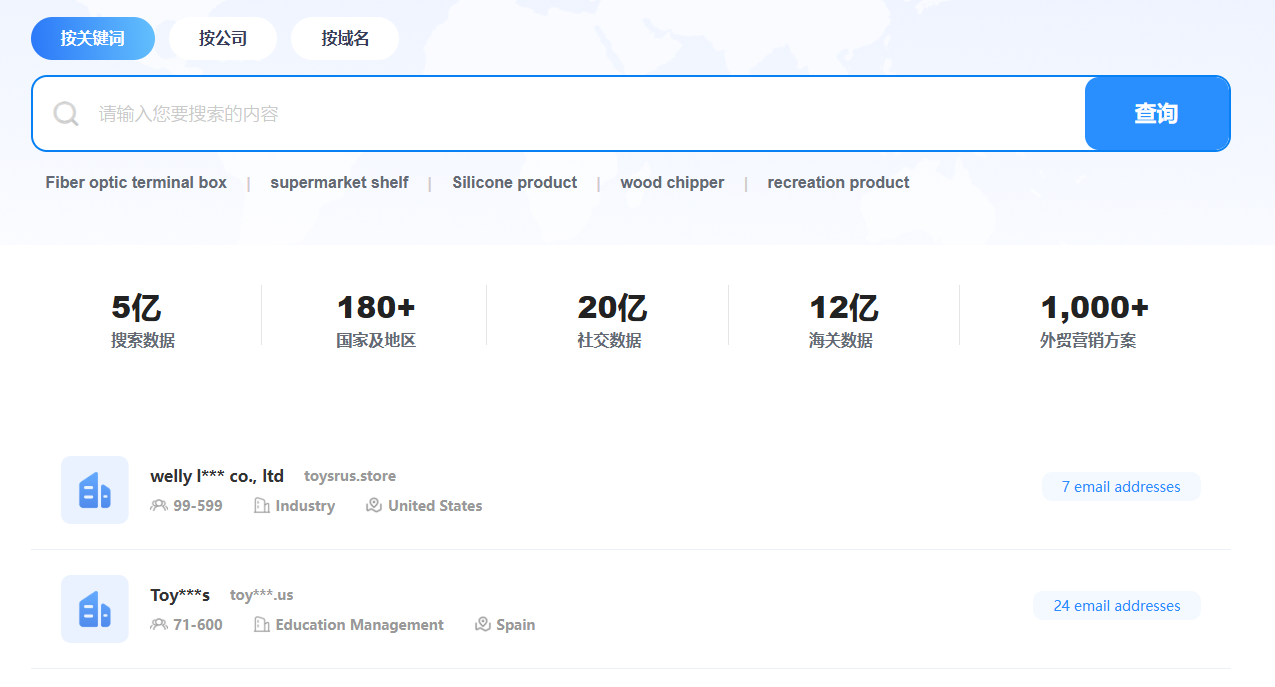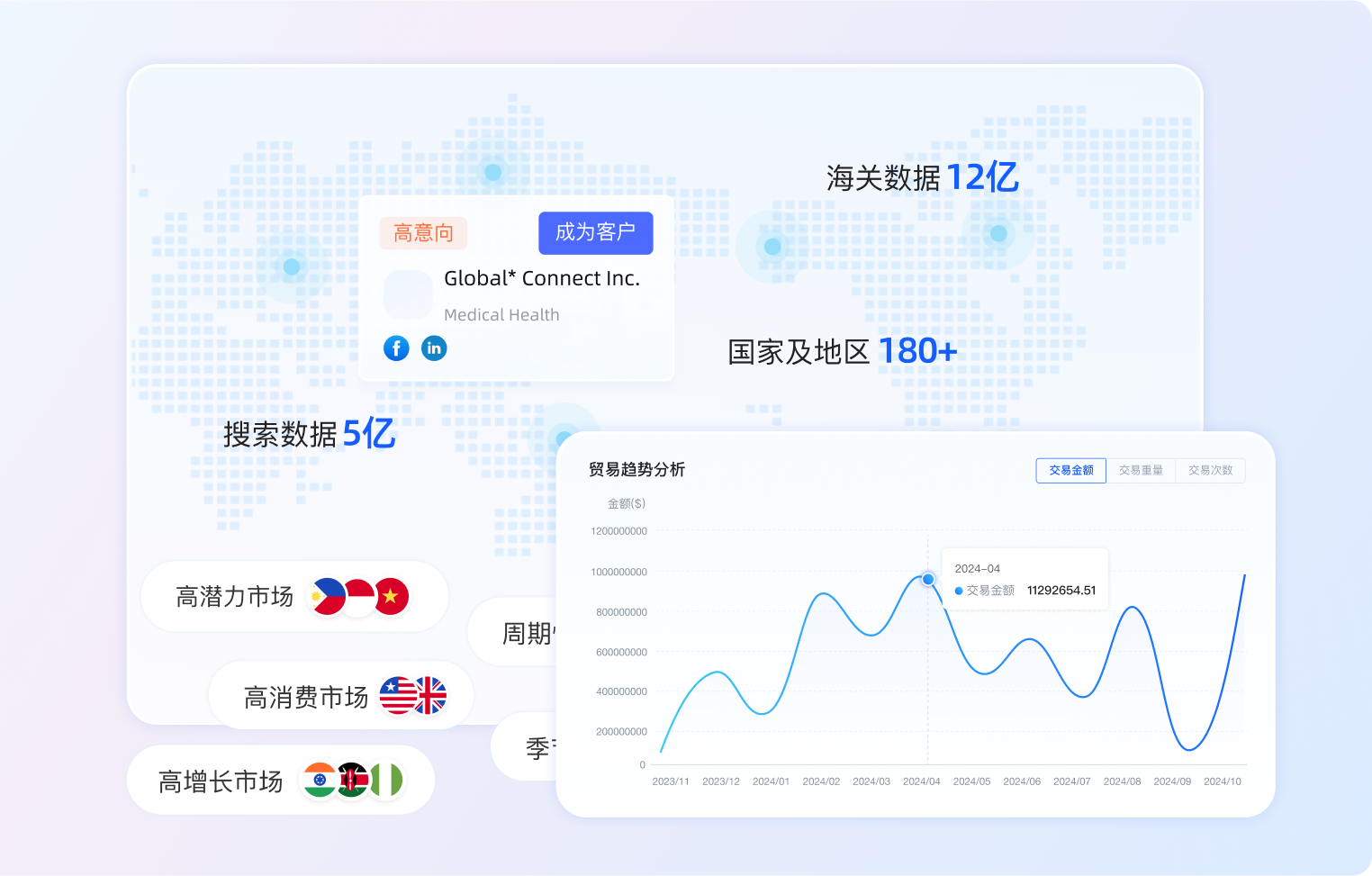 400-076-6558智领未来,外贸超级营销员
400-076-6558智领未来,外贸超级营销员
 400-076-6558智领未来,外贸超级营销员
400-076-6558智领未来,外贸超级营销员

Entering the global market can be overwhelming, especially for those new to foreign trade. However, effective use of customs data can be the cornerstone of your overseas market expansion strategy. This guide will walk you through real-life examples and actionable steps to help you identify target markets, find potential customers, and accurately analyze competitors.
Customs data provides a detailed record of global imports and exports, revealing who transacted, when, and for how much. It’s a valuable source of intelligence for new B2B exporters, helping them to:
Pinpoint high-demand products in specific countries.
Identify active buyers and their purchasing trends.
Evaluate competitor activities and market entry opportunities.
Start by analyzing the import volume and value for your product category. For example, if you sell organic spices, look at the countries that have seen an increase in import trends in recent months.

For example, recent data shows that imports of organic cinnamon from Country X have increased 35% over the past 12 months, indicating a promising market. Drill down further to see which companies are the main importers and record their purchase frequency and shipment volumes.
Customs records list importers and exporters by company name, shipment date, quantity, and HS code. You can use it to:
Compile a list of verified overseas buyers who have imported products similar to yours.
Track their supply chain activities to assess reliability and order volume potential.
Build the confidence to engage with these companies, backed by data-backed insights.
Understanding your competitors’ export footprint can help you avoid market saturation and customize your products. Observe your competitors’ shipment destinations, volumes, and frequencies:
| competitor | Main exporting countries | Monthly export volume (tons) |
|---|---|---|
| Company A | Country X, Country Y | 120 |
| Company B | Country Z | 90 |
With insights like these, you can then find underserved markets or niches where your product can fill an unmet need.

John is a new foreign trader who specializes in specialty teas. He used customs data to accurately target an emerging market in Country Y, where tea imports grew 25% year-on-year. He identified three major importers, developed tailored quotes, and gradually won orders worth more than $200,000 within six months. His success came from precise positioning and data-based thinking rather than blind expansion.
Keep monitoring updates to get on top of new trends early.
Cross-reference customs data with market news and trade policies to get the complete picture.
Break down data by HS code to focus on your product category.
Verify potential customers’ credibility through shipping history.
AB Customs Data is an integrated platform designed for foreign trade novices who are eager to expand their overseas business efficiently. Get comprehensive and real-time customs freight intelligence and accurately locate global buyers and suppliers.
Free trial of AB customs data.png?x-oss-process=image/resize,h_100,m_lfit/format,webp)
.png?x-oss-process=image/resize,h_100,m_lfit/format,webp)

.png?x-oss-process=image/resize,h_100,m_lfit/format,webp)
.png?x-oss-process=image/resize,h_100,m_lfit/format,webp)
.png?x-oss-process=image/resize,h_100,m_lfit/format,webp)
.png?x-oss-process=image/resize,h_100,m_lfit/format,webp)
